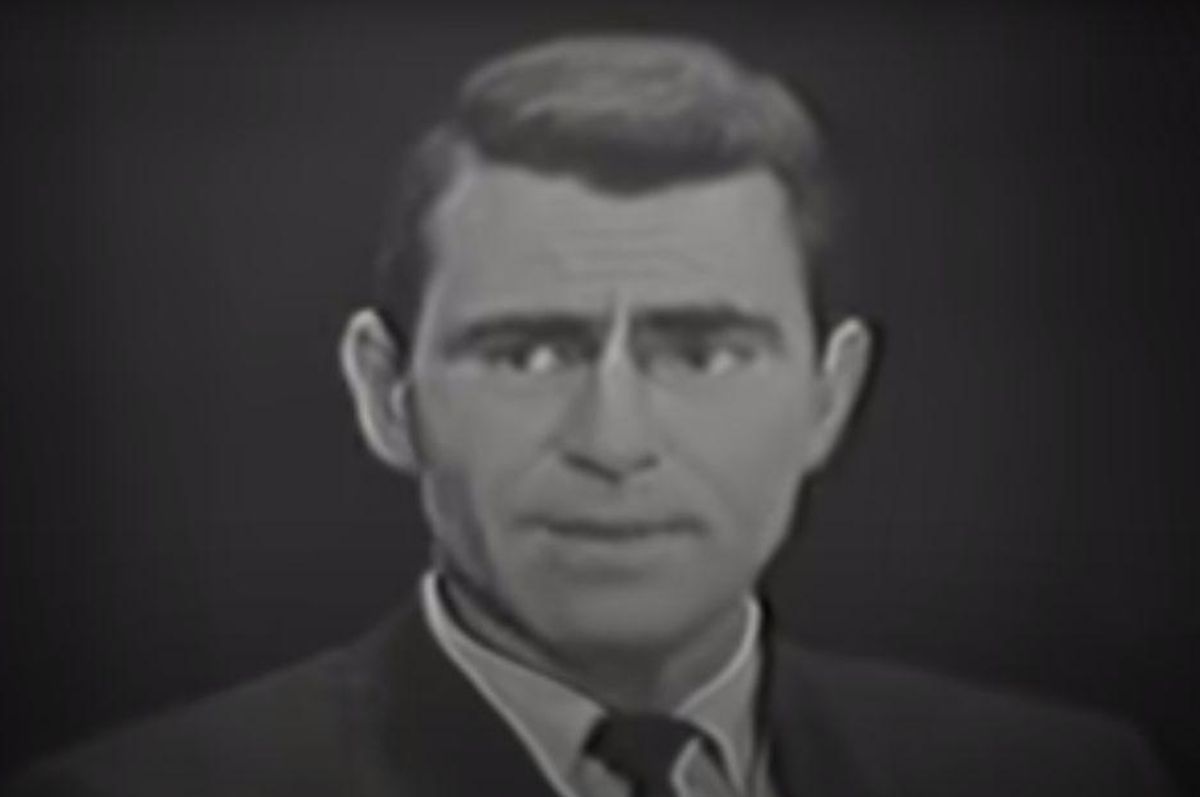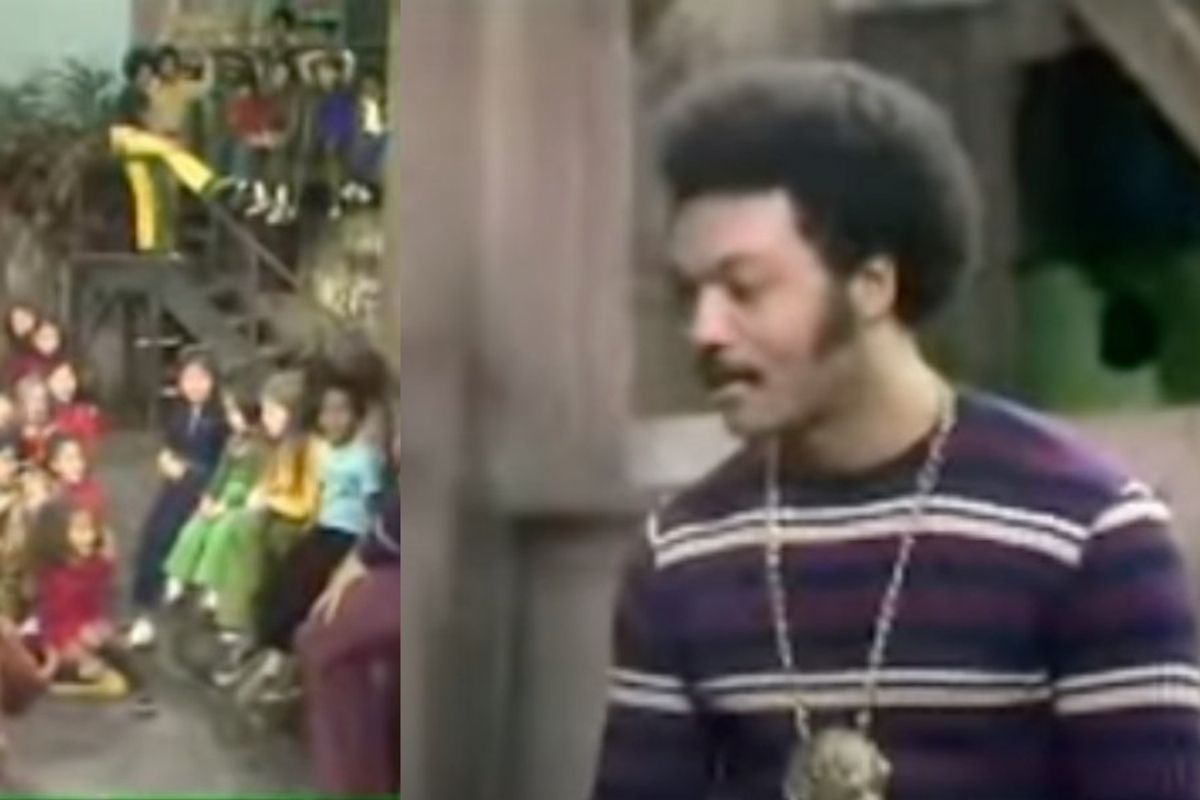How Emmett Till's murder inspired Rod Serling to create the original 'Twilight Zone' series
Frustrated by censors, Serling went a different route, with great success.

Rod Serling found himself frustrated by censors when he tried to tackle racism.
The original "Twilight Zone" series was unlike anything anyone had ever seen on television. Airing from 1959 to 1964, the sci-fi/horror show frequently referenced in popular culture and cited as one of the best TV shows of all time was the brainchild of Rod Serling.
Serling's inspiration for the show wasn't rooted in science fiction or cinematic horror, but rather in the dark reality of American racism
In 1955, Emmett Till, a 14-year-old African American boy from Chicago, was brutally murdered while visiting relatives in Mississippi. Till had been accused of flirting with a white woman in a store, and the woman's husband and his half-brother kidnapped, mutilated and lynched Till for his "crime." The two men were arrested and a trial was held, but the all-white, all-male jury acquitted the two men of all charges after less than an hour's deliberations.
Till's mother courageously fought for Emmett's story to be told, and she insisted his funeral be open-casket so the world could see what those men had done to her son. Photographs from the funeral made national news and galvanized people across the country, fanning the early sparks of the Civil Rights Movement.
Serling, who was 30 years old at the time, watched Till's story play out in the news. A rising star in the television world, Serling set out to write a teleplay that addressed the racism at the heart of Till's murder. In an interview with Mike Wallace, Serling explained how he'd written a show sponsored by U.S. Steel, and by the time the censors were finished with it, the script was a "lukewarm, vitiated, emasculated" version of what he'd originally created. Every reference to Black or white, the South and anything that even slightly alluded to the South was changed or removed. (Serling describes the censors removing Coca-Cola bottles from a scene because they might have too much of a Southern connotation.)
"It bore no relationship at all to what we had purported to say initially," he told Wallace.
Serling fought back, but ultimately the money holds the power. He felt forced to accept it, though he voiced his feelings about censorship of challenging themes.
"I think it's criminal that we're not permitted to make dramatic note of social evils as they exist, of controversial themes as they are inherent in our society," he told Wallace. "I think it's ridiculous that drama, which by its very nature should make a comment on those things that affect our daily lives, and is in the position, at least in terms of television drama, to take a stand."
As explained in Smithsonian magazine, station owners and advertising agencies catered to white audiences and were fearful of losing money if something offended them. Serling would later say, "From experience, I can tell you that drama, at least in television, must walk tiptoe and in agony lest it offend some cereal buyer from a given state below the Mason-Dixon.”
Serling tried again to frame a show episode around Emmett Till's story, but set it as a lynching in the Southwest. That script also got changed, set back 100 years and erasing all mention of Till and race. But Serling did manage to get a message about "the ugly picture of prejudice and violence" conveyed in the show's closing monologue.
Ultimately, Serling realized that tackling issues like racism and prejudice head-on was not going to work within the power structure of television, so he had to get creative. A show like "The Twilight Zone" would allow for social issues to be addressed through metaphor and allegory. Serling expressed the hopeful belief that people can have their eyes opened to their own inner biases through indirect stories that tap into such themes.
In an interview for the Library of Congress, Serling explained:
"You may have to tell them a story of prejudice in parable form, in which they may step aside as third persons and cluck and say, 'Tsk tsk tsk, how awful we treat our minority groups,' but at least they know that it's an evil, and they will recognize it as such, and by osmosis or some incredible process, will somewhere along the line be faced with a situation in which they too may have to exorcise their prejudice and be conscious of it as an evil. Now on "Twilight Zone," for example, done during just as timorous a time as any other time, we made a comment on prejudice, on conformity, on intolerance, on censorship. But it's easy to do it when you're talking about 'Buck Rogers isn't allowed to write his memoirs in the way he wants to write them, so he puts on his backpack, his rocket-pack, and he zooms over to the publisher.' And they applaud and laugh and think, 'How exciting and interesting.' Now, it may well be that the inner message may never get through, but I think peripherally it does get through."
Though he was never able to bring Emmett Till's story to the screen in the way he wanted to, Serling did manage to push storytelling in a way that—hopefully—helped peel away layers of prejudice that veil people from the truth about themselves.
As he said, "The writer’s role is to menace the public’s conscience. He must have a position, a point of view. He must see the arts as a vehicle of social criticism and he must focus on the issues of his time.”
Serling did menace people's consciences and focus on the issues of his time. He just did it through strange science fiction tales—and he did it well.






 Thomas Jefferson's Monticello.via
Thomas Jefferson's Monticello.via  The Jefferson Memorial in Washington, D.C.via Joe Ravi/Wikimedia Commons
The Jefferson Memorial in Washington, D.C.via Joe Ravi/Wikimedia Commons

 Indoor cats can enjoy the outdoors safely with a harness and leash.
Indoor cats can enjoy the outdoors safely with a harness and leash.
 Do any of us still make sourdough?
Do any of us still make sourdough?  A fused glass bowl.
A fused glass bowl.  An example of aquascaping.
An example of aquascaping.  Whittled Halloween figures.
Whittled Halloween figures.  A water color painted bookmark.
A water color painted bookmark.  A cross-stitched pattern of a goddess-like woman.
A cross-stitched pattern of a goddess-like woman.  Latte art.
Latte art. A handmade wood cabinet.
A handmade wood cabinet. A watercolor butterfly.
A watercolor butterfly. An oil portrait of a baby.
An oil portrait of a baby.  Pressed four leaf clovers.
Pressed four leaf clovers.  A clay pumpkin.
A clay pumpkin.
 Gary Smalley and John Trent's personality test
Gary Smalley and John Trent's personality test A lion roams.
A lion roams.  An otter is surprised.
An otter is surprised.  Beaver enjoying a snack.
Beaver enjoying a snack.  Golden Retriever adorably looks up.
Golden Retriever adorably looks up.